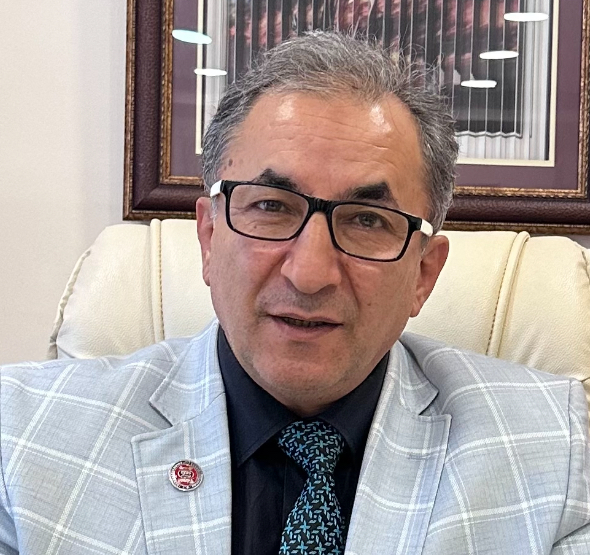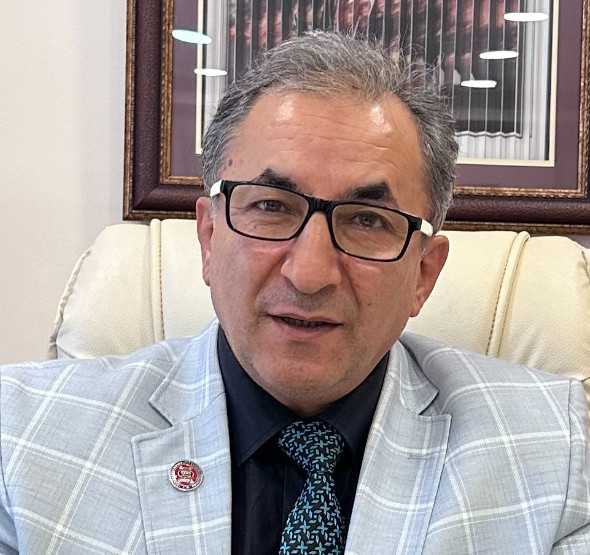
Those who don't closely examine the internal dynamics of the Middle East are often inclined to resort to easy generalizations like "Arabs" or "the Arab world". However, when the region is read within its own dynamics, especially four countries stand out: Türkiye, Egypt, Iran, and Saudi Arabia. The network of relationships is shaped at points where these four countries are central. All external actors involved in the region must align with at least one of these four countries. The proximity or distance, cooperation or competition, friendship or enmity between these countries form the essential context in which history is written in the Middle East.
With President Erdogan's visit to Egypt drawing attention to the Middle East once again, it is evident that Egypt's position within the Arab world is not adequately appreciated in our country. Considering its importance, I have been bringing this issue to my column at certain intervals. Now, I would like to remind the main points, not in detail but as headlines:
With its extraordinary position that brings together the regions of Africa, the Mediterranean, Arabia, and Bilad al-Sham; with a population that has already exceeded 100 million and a significant portion of which is scattered around the world; with the largest army in the Arab world, which also controls the country's economic mobility in the form of a colossal conglomerate; by nurturing both Arab nationalism and the Muslim Brotherhood, one of the most powerful Islamic movements in recent history; as one of the most influential centers of the press, media, and publishing industry; by holding an academic institution like Al-Azhar University; with its Cairo, the only city in the Islamic world that can compete with Istanbul... And with many more advantages and assets, Egypt is the flagship of the Arab world.
For Muslim public opinion, the first issue expected and hoped for from such cooperation is undoubtedly Gaza. While Israel, taking advantage of the fragmentation in the Islamic world and disputes among state leaders, continues its ruthless genocide against innocent civilians in Gaza, it is of vital importance that powerful countries in the region, such as Türkiye and Egypt, join forces in solidarity on this issue and establish a common defense line against Israeli occupation. Egypt, as the first addressee of the crisis in Gaza due to its physical, cultural, and historical proximity, cannot act alone due to the conditions and various handicaps it faces. A process conducted jointly with Türkiye will also save Egypt from its loneliness.
As Türkiye and Egypt come closer again, it should be noted that competition and disputes between the two countries will not disappear completely. Not only the fluctuations in bilateral relations in recent years, but also many points of disagreement inherited from the depths of history exist. However, works to be carried out jointly are much more than controversial and conflicting issues.
The Muslim Brotherhood, completely demonized during the Gamal Abdel Nasser era and positioned as an "internal enemy", was rehabilitated by the subsequent Egyptian President Anwar Sadat, and many prison and death sentences against Muslim Brotherhood members were lifted, granting serious freedom and freedom of movement to Muslim Brotherhood members in Egypt. So much so that when Sadat was assassinated in 1981, Omar Tilmesani, the then general guide of the Muslim Brotherhood, even said, "Sadat was martyred like Caliph Uthman." During the Hosni Mubarak era, the Muslim Brotherhood was also in a position where its activities were "tolerated". More than 500,000 people attended the funeral of Tilmesani, who died in 1986, in Cairo; The Prime Minister of Egypt, the Sheikh of Al-Azhar, and many foreign guests personally attended the ceremony.
In conclusion, do not be surprised by the changes in the region and expect more. This is the Middle East. Surprises are never lacking here.




